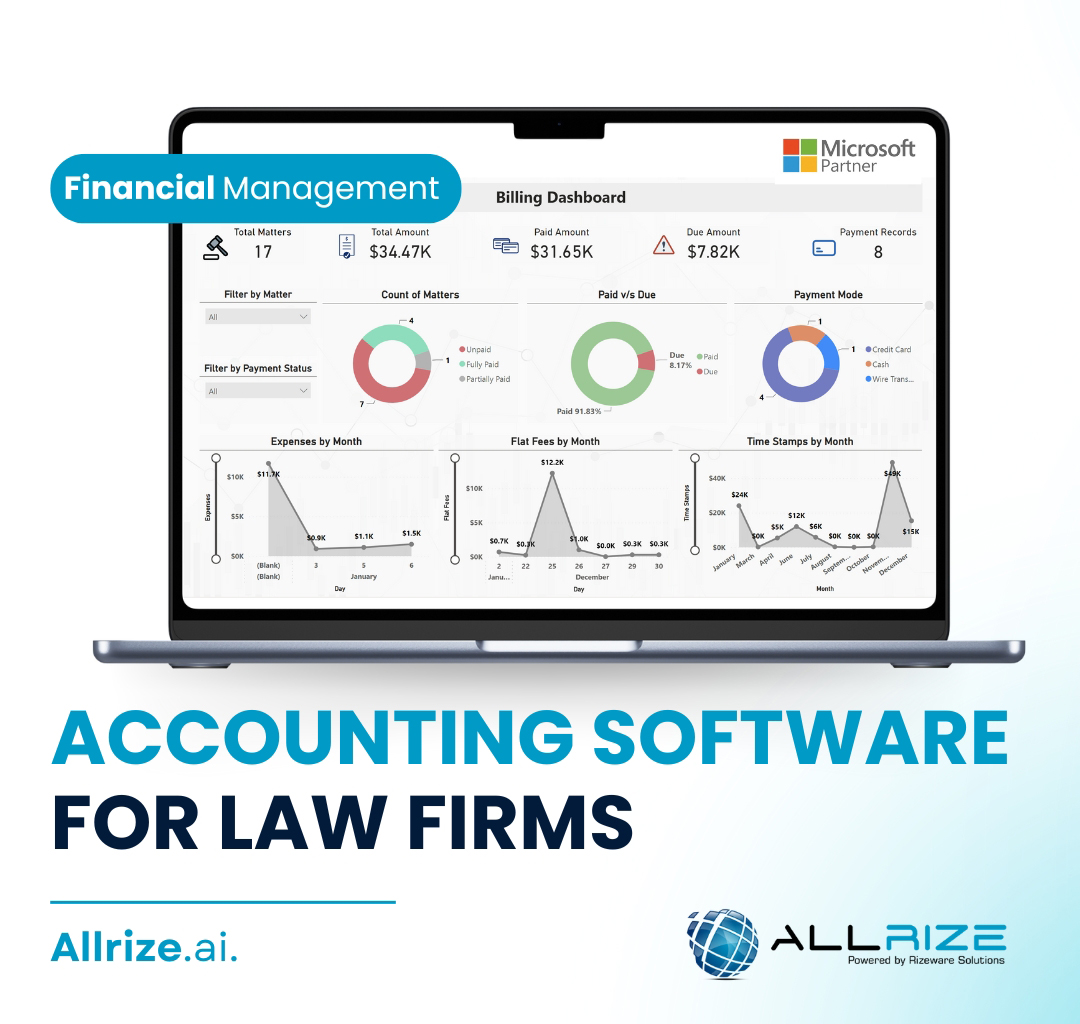AllRize Law Practice Management Platform
Accounting Module
In the legal industry, accounting takes on added complexity due to the specific ethics rules and regulatory requirements that apply. The AllRize accounting platform provides advanced accounting tools that automate manual tasks, reduce the risk of errors, and provide real-time insights into a firm’s financial health.
Key Capabilities and Features of the AllRize Accounting Module
1. General Ledger Management
Easily manage invoices, payments, payroll, trust account activities, and operational expenses. Track all financial transactions via a user-friendly interface that simplifies entry management and account reconciliation.
2. Trust Accounting
The AllRize Accounting Platform’s trust accounting tools make it easy to automatically separate funds, keep detailed records, prevent commingling, and stay prepared for audits.
3. Time and Expense Tracking
Record billable hours and track case-related expenses accurately. Take advantage of customizable tracking as well as mobile access to allow remote time and expense entry.

4. Billing and Invoicing
Eliminate manual workflows with automated billing and invoicing. Enable bulk invoicing while still having the flexibility to customize for client-specific billing guidelines. The software can accommodate various billing arrangements, such as hourly rates, fixed fees, or contingency-based billing.
5. Reporting and Analytics
Advanced reporting and analytics provide valuable insights into your law firm’s financial health. This includes generating financial reports, profit and loss statements, and analyzing billable hours.
6. Scalability
Our accounting software can grow with your firm and help you scale, accommodating increased workloads and additional clients without significant disruptions.
Benefits of AllRize Accounting
1. Enhanced Accuracy
Automated features eliminate the chance for human error and reduce the likelihood of financial discrepancies or compliance issues.
2. Improved Efficiency and Cost Reduction
Automate time-consuming tasks like reconciling trust accounts and generating invoices. Increased efficiency means reduced operational expenses.
3. Valuable Insights
Access to detailed and customizable financial reports give you an instant picture of the financial health of your firm, enabling you to make informed decisions and plan for the future.
4. Compliance Management
Our software automatically runs a series of checks and controls, helping you maintain compliance with legal and regulatory requirements and reducing your risk of penalties or legal issues.
5. Data Security
Robust security features and routine backups to protect financial data from unauthorized access or loss.

